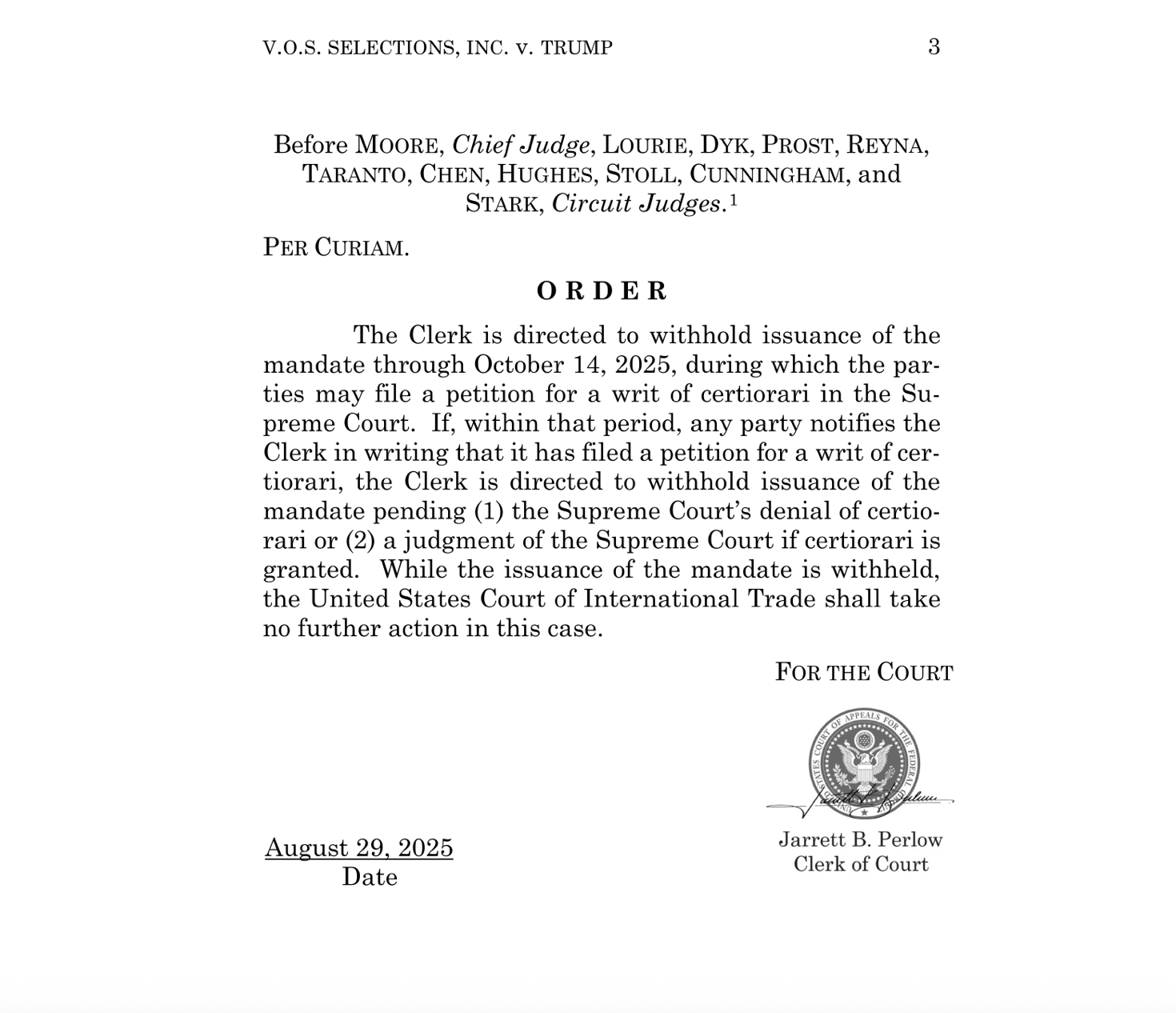VOS selections … Take a bow, U.S Courts rules tariffs illegal. NYC Family Wine Importer restarts 3.05 trillion in Global Trade.
VOS Selections, a New York–based wine importer and distributor, found itself at the center of a case with sweeping implications for both U.S. law and international trade. The company led a coalition of American businesses in challenging the legality of tariffs imposed by former President Donald Trump, who justified them under the International Emergency Economic Powers Act (IEEPA). The businesses prevailed, securing a landmark victory against one of the administration’s most aggressive trade measures.
A Legal Turning Point
The U.S. Court of International Trade (CIT) ruled unanimously that the Trump administration had exceeded its authority. The judges held that IEEPA—passed in 1977 to allow presidents to address extraordinary foreign threats such as terrorism or hostile regimes—was never intended as a blanket tool for reshaping global trade. In fact, the law explicitly carves out restrictions on regulating “personal communication, humanitarian donations, and, critically, the importation of goods,” unless tied directly to a genuine national emergency.
By invoking IEEPA to impose tariffs on a wide array of imports, the administration bypassed Congress, which under the Constitution retains authority over tariffs and commerce. Legal scholars argue that the ruling reinforces a constitutional principle: emergency powers cannot serve as a backdoor for unilateral economic policymaking. The decision also fits within a broader judicial trend of questioning executive overreach, echoing recent Supreme Court cases that narrowed agencies’ regulatory powers.
Broader Implications for Trade Policy
The CIT ruling was followed by a related decision from the U.S. Court of Appeals for the Federal Circuit, which went further. In a 7–4 opinion, the appellate court struck down most of Trump’s tariffs—including broad “reciprocal” tariffs aimed at dozens of countries and targeted measures against China, Mexico, and Canada—declaring them “invalid as contrary to law.” The court emphasized that absent explicit congressional authorization, the president cannot invoke emergency powers to rewrite the rules of global trade.
While the decision does not take effect until October 14—giving the administration time to appeal to the Supreme Court—it already signals a potential recalibration of U.S. trade authority. If upheld, it could constrain future presidents from wielding IEEPA as a catch-all trade weapon, preserving Congress’s constitutional role in setting tariff policy.
Impact on Global Wine Exports
For VOS Selections and the wider U.S. wine trade, the stakes were especially high. The Trump-era tariffs disrupted the $40+ billion global wine export market, where supply chains are finely balanced. European wines bore the brunt of certain tariff rounds, with French, Italian, and Spanish producers facing levies as high as 25%.
For U.S. importers, these measures translated into soaring costs that had to be passed on to distributors, retailers, and ultimately consumers. Small importers like VOS Selections—whose business model relies on curating boutique wineries and artisanal producers—were disproportionately affected. Unlike global conglomerates, they lacked the scale to absorb the added costs or quickly pivot supply chains.
The tariffs also triggered ripple effects internationally. European exporters, facing declining U.S. demand, redirected shipments to Asia and Latin America, further intensifying global competition. Meanwhile, U.S. wine producers—who depend heavily on foreign markets, with exports valued at over $1.5 billion annually—faced retaliatory tariffs, particularly in key markets such as the European Union and China. This reduced competitiveness for American wines abroad while shrinking consumer choice at home.
A Dual Victory: Legal and Commercial
The legal victory, therefore, was not just about constitutional checks and balances; it was also about survival for thousands of small and mid-sized businesses caught in the crossfire of tariff wars. For the wine industry, the ruling helps restore stability in a market already pressured by supply chain disruptions, shifting consumer preferences, and post-pandemic recovery challenges.
More broadly, the case underscores how closely intertwined law, policy, and commerce have become in the globalized economy. A statute designed to confront Cold War–era threats was stretched into a tool for trade wars, until the judiciary stepped in to draw new boundaries. Going forward, the decision could mark a turning point in how the U.S. balances executive authority, congressional oversight, and the health of industries dependent on open markets.




